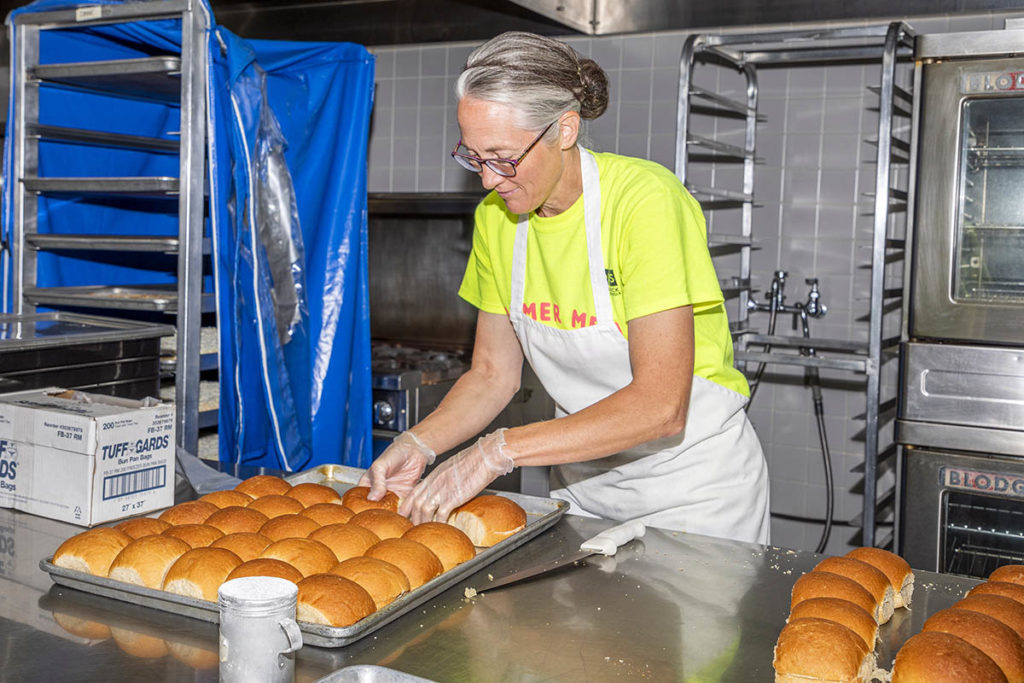
Supply chain disruptions are threatening student meal programs at more than half of North Dakota’s school districts, prompting the North Dakota Association of Rural Electric Cooperatives to look for innovative solutions to a problem affecting rural communities nationwide.
Lori Capouch, rural development director for the statewide association, is talking to U.S. Postal Service officials in North Dakota about the possibility of using underutilized postal trucks to deliver food to school districts and small grocery stores throughout the state.
Wholesale food suppliers could drop orders placed by rural groceries or school purchasing cooperatives at centralized locations where the products could be sorted and transported to their final destinations by the postal service, she said.
“USPS is aware of the concept,” Capouch said. “They’ve been quick to say, ‘we want to support you.’ The volume of mail has really been going down in rural areas like ours, so this would help everyone. We want to try a pilot project and see how it would work.”
Capouch had already been working on the idea because of overall food distribution problems in the state, which has grocery stores in only about one-third of its towns. But it took on an increased urgency when Cash-Wa Distributing Co., an institutional food supplier in the Midwest, notified 103 of the state’s 204 school districts that they would no longer be able to deliver food for student meals after Nov. 1. The company, like many suppliers around the country, has been hurt by labor shortages in the trucking and warehouse industries during the COVID-19 pandemic, Capouch said.
Most of the affected schools—all but nine—have been able to scramble and get food through alternative suppliers, she said.
“But that’s only a short-term solution,” Capouch said. “We need to keep working on a longer-term approach.”
Josh Kramer, NDAREC’s executive vice president and general manager, said the association’s involvement in the issue reflects co-ops’ commitment to their communities.
“Who else is going to step up if co-ops don’t?” he said. “Yes, we provide electric service, but we’re also here to improve the quality of life in rural communities. Access to quality-of-life essentials in rural places, whether it be electricity, broadband, health care or healthy food, are not new issues for those of us in rural places.”
“As cooperatives, we understand the benefits of a team approach when it comes to taking care of our members, our communities and our kids,” Kramer said. “Unfortunately, the most vulnerable among us are probably going to get hurt the most by these supply chain problems. For some of these kids, school lunches are the one meal they can count on each day. We must act.”
Erin Kelly is a staff writer for NRECA.